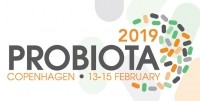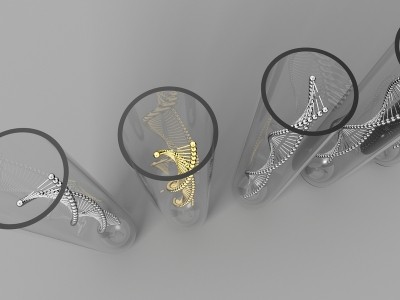Peek Inside: Probiota 2019 - Copenhagen
Gut guidance: Microbiome-based dietary advice adds another string to personalisation bow

These are the thoughts of Tine Rask Licht, professor of intestinal microbiology, National Food Institute at the Technical University of Denmark as she takes the stage at Probiota 2019 in association with the International Probiotics Association (IPA).
Talking exclusively to NutraIngredients, professor Licht spoke of the leap forward microbiota insights are having on shaping medical and nutritional advice, commenting on the advent of “personal advice based partly on the microbiota, together with other health related biomarkers”.
“I am convinced that that’s where we are going,” she said. “We already know that there is a huge interpersonal variation in the gut microbiota, and that this can be used to predict e.g. the individual glycaemic response to specific diets.
“Thus the ‘one-size-fits-all concept’ is very likely to gradually be replaced by personal advice based partly on the microbiota (together with other health related biomarkers). This is true both for medical and nutritional advice.”
Probiota in Copenhagen
Professor Licht, whose research interests include the dietary and in particular pre- and probiotic effects on gut microbiota and its metabolites, kicks off proceedings with her presentation entitled ‘Impact of diet on gut microbes in children and adults,’ at the event in Copenhagen, Feb 13th – 15th.
Her views on current pre/post biotic products acknowledge that manufacturers are in the early stages of a burgeoning industry, where offerings are non-specific and targeted towards ‘improving health.’ Professor Licht is in no doubt that change will eventually come.
“I think that the overall challenge for industry is often how to prove that a product makes healthy people healthier,” she said.

“Thus I think that future pro- and prebiotics should be designed to alleviate specific problems, rather than just to ‘improve health’.
“I think that a lot of the products currently offered are primarily chosen/designed for reasons such as ease of production – Thus, I think that the next generations of such products should be designed based on knowledge about specific effects in the body of the consumer."
In line with this, Professor Racht suggested a focus towards the use of anaerobic bacterial strains, and complex bacterial mixtures rather than single strains adding, “We are moving in that direction – but, obviously, change takes time.”
The gut and breastfeeding
One of Professor Racht’s other interests lie in her activities addressing the interplay between gut microbes and inflammatory and metabolic phenotypes of the host in adults and children.
Here, her presentation will aim to deliver research insights identifying breastfeeding as a key factor that affects gut microbial diversity in infancy.
The rapidly evolving universe of probiotics, prebiotics and the microbiome will be discussed in-depth at the upcoming Probiota 2019 in Copenhagen on February 13-15.
From microbiome advances, to start-up game changers, market stats, crucial clinical science and regulatory knowledge, this is a congressional must-have.
Will you be joining your peers in one of Europe’s great cities?
With breastfeeding rates at an all-time low, professor Racht is quick to highlight the need not to "scare mothers that for some reason are not able to breastfeed. Children normally grow and develop fine on formula."
“That being said, I think it is important to breastfeed if you are able to do so, as it is well documented that this reduces the risk of a range of immune related problems (e.g. allergies, asthma) in the child later in life,” she added.
“Therefore, it is important that societal structures help women to have the option to breastfeed.”
Current research emphasises a strong link between breastfeeding and boosting a baby’s immune health. Added to that a complementary diet, the maturation of the gut microbiota is assured for the infant in what is considered the ultimate personalised diet.
Commenting on how effective breast milk substitutes are as a viable alternative to a diet of breastmilk, professor Racht sees more knowledge gained about the specific human oligosaccharides (HMOs) present in breastmilk and their highly selective effect on specific bacterial species in the infant gut.
“There is definitely progress,” she said. “Companies such as Glycom are currently producing HMOs similar to the ones naturally present in breastmilk.
“Nevertheless, there are still many challenges related to synthetic production of such oligosaccharides, and I think there some way to go before it is possible to offer formula with the same complex HMO profile as that of real breastmilk.”
















